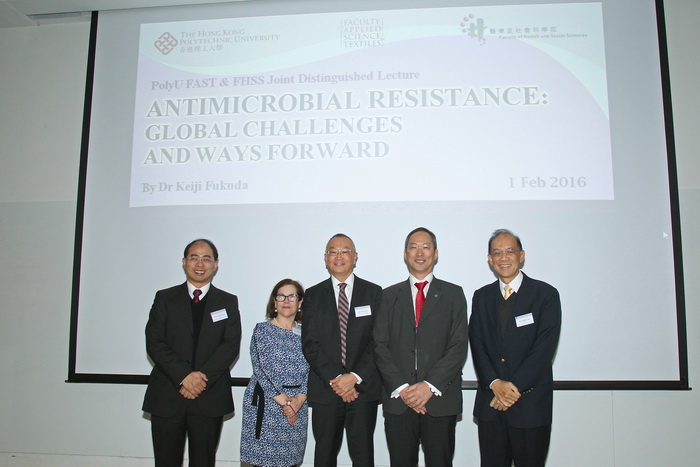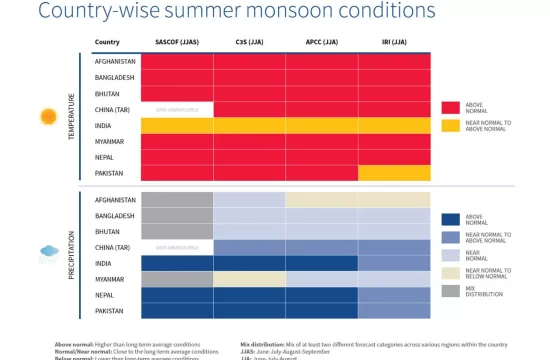Assistant Director-General of the World Health Organization and Special Representative for Antimicrobial Resistance in the Office of the WHO Director-General have presented an inaugural Distinguished Lecture entitled “Antimicrobial Resistance: Global Challenges and Ways Forward” at The Hong Kong Polytechnic University.

With a mission to promote public awareness of the threat of antimicrobial resistance, the Faculties of Applied Science and Textiles (FAST) and Health and Social Sciences (FHSS) at The Hong Kong Polytechnic University (PolyU) were proud to have invited Dr. Keiji Fukuda, Assistant Director-General of the World Health Organization (WHO) and Special Representative for Antimicrobial Resistance in the Office of the WHO Director-General, to present an inaugural Distinguished Lecture entitled “Antimicrobial Resistance: Global Challenges and Ways Forward” on 1st February 2016 at PolyU’s main campus.
PolyU Vice president (research development), Ir. Professor Alexander Wai Ping-kong, delivered the opening remarks at the lecture while the Deans of FAST and FHSS, Prof. Wing-tak Wong and Prof. Maurice Yap jointly welcomed Dr. Fukuda to start the lecture. Approximately 250 participants from academia and local hospitals including pediatricians and clinicians attended this lecture.
[pullquote]PolyU would endeavour to address and combat global antimicrobial resistance through working with scientific communities, organizations and government agencies.[/pullquote]
Antimicrobial resistance, or AMR, now constitutes a significant threat against effective treatments for infectious disease worldwide. Of great concern to clinicians and scientists alike, AMR has also attracted attention to the general public in recent years. This growing public awareness reflects increasing worries over the potential of AMR to cause severe economic loss and compromise human health. Actions such as the “Global action plan on antimicrobial resistance” and “Antibiotic awareness week” have been taken by WHO in May and November 2015, respectively. This shift in perception is welcome and essential because AMR has become a global and multidisciplinary issue, hence any long-term and sustainable solutions to the problem require not only technological advancement but also introduction of new policies to regulate the use of antibiotics.
The challenges and obstacles faced in devising a solution to problems due to AMR were discussed in Dr. Fukuda’s lecture. “About 10 million deaths per year globally (more than cancer) will occur and cost an accumulative cost of 100 trillion USD by 2025 if we don’t improve the problem of AMR”, Dr. Fukuda said.
In order to tackle AMR, PolyU has been proactively working with multiple approaches including establishment of surveillance system in Hong Kong, Shenzhen and Guangzhou, study on the mechanisms of AMR, as well as development of new antimicrobial drugs and platforms to detect antibiotic residues in foods. PolyU would endeavour to address and combat global antimicrobial resistance through working with scientific communities, organizations and government agencies.







